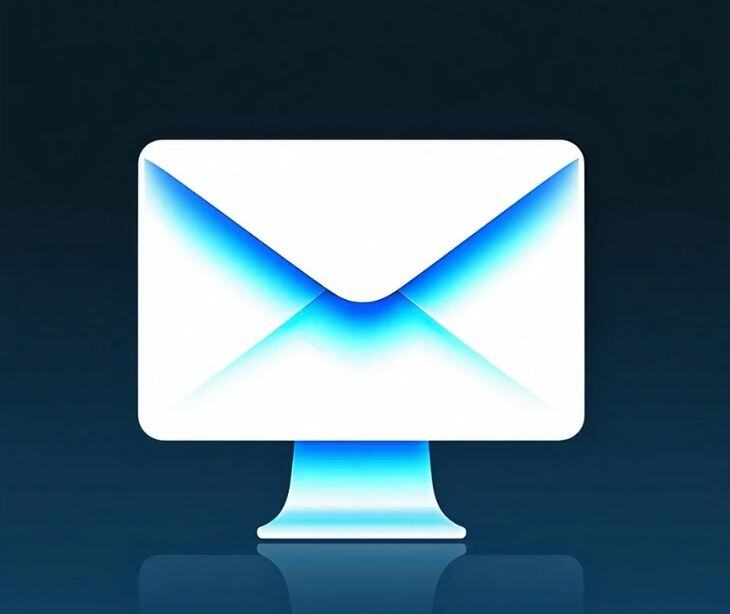2 min read
Support the HHS's AI strategic plan with HIPAA compliant email
Caitlin Anthoney January 11, 2025

The U.S. Department of Health and Human Services (HHS) recently released its strategic plan for using Artificial Intelligence (AI) to enhance and protect the health and well-being of Americans.
The plan provides a detailed roadmap for the responsible and effective integration of AI into healthcare, human services, and public health while maintaining safety, equity, and accessibility.
What the HHS says about AI
According to Deputy Secretary Andrea Palm, “[AI] technologies hold unparalleled ability to drive innovation through accelerating scientific breakthroughs, improving medical product safety and effectiveness, improving health outcomes through care delivery, increasing access to human services, and optimizing public health.”
“However, our optimism is tempered with a deep sense of responsibility. We need to ensure that Americans are safeguarded from risks. Deployment and adoption of AI should benefit the American people, and we must hold stakeholders across the ecosystem accountable to achieve this goal.”
The HHS’s AI Strategic Plan outlines four goals to guide the responsible implementation of AI in healthcare and public health:
- “Catalyze health AI innovation and adoption to unlock new ways to use AI to improve people’s lives;
- Promote trustworthy AI development and ethical and responsible use to avoid potential harm;
- Democratize AI technologies and resources to promote equitable access for all; and
- Cultivate AI-empowered workforces and organizational cultures to allow staff to make the best use of AI.”
Understanding HIPAA in the AI era
The Health Insurance Portability and Accountability Act (HIPAA) is a federal law that mandates that covered entities, like healthcare providers, safeguard individuals’ protected health information (PHI).
As healthcare systems incorporate technological advancements, like AI, covered entities must maintain the privacy and security of PHI.
More specifically, HIPAA compliant solutions, like Paubox, uphold the HHS's approach to “improve the quality, safety, efficiency, accessibility, equitability, and outcomes in health and human services through the innovative, safe, and responsible use of AI.”
How HIPAA compliant emails align with the HHS strategic plan
Catalyzing health AI innovation and adoption
AI-powered platforms are often used in predictive analytics for patient care, remote patient monitoring, and even AI-assisted clinical trials. These platforms analyze large quantities of patient data to identify patterns, predict disease progression, and recommend personalized treatments.
However, providers must adhere to HIPAA regulations when transmitting patient data for AI analysis.
HIPAA compliant email solutions, like Paubox, allow healthcare providers, researchers, and patients to share sensitive health data, unlocking new opportunities to improve patient outcomes, drive medical innovation, and streamline healthcare delivery.
Promote trustworthy AI development and ethical and responsible use
HIPAA compliant emails can secure AI development and deployment-related communications, helping developers, healthcare providers, and patients comply with federal regulations.
These emails include advanced security measures, like encryption and authentication methods, to help protect data from unauthorized access, aligning with the ethical framework of the Strategic Plan.
Democratize AI technologies and resources to promote equitable access for all
Providers can use AI with HIPAA compliant emails to extend AI-driven healthcare innovations to underserved populations and prevent discriminatory practices.
Ultimately, promoting equitable healthcare access while maintaining HIPAA compliance.
Cultivate AI-empowered workforces and organizational cultures
As AI becomes a more integral part of healthcare delivery, organizations must cultivate a workforce skilled in using these technologies effectively.
Similarly, HIPAA compliant email solutions are training mechanisms for building a culture of compliance. So, providers can use these systems to ensure that their staff is familiar with privacy regulations and use AI within ethical and legal guidelines.
Learn more: The pros and cons of using AI in healthcare
FAQs
What makes an email HIPAA compliant?
HIPAA compliant email solutions, like Paubox, offer encryption of protected health information (PHI), secure storage of PHI, access controls, audit trails, and mechanisms for obtaining patient consent.
Can AI be integrated into HIPAA compliant emails?
Yes, AI-powered features can be integrated with HIPAA compliant emailing platforms, like Paubox, to automate processes like patient consent management and send personalized emails while maintaining HIPAA compliance.
Are there any limitations when using AI in HIPAA compliant emails?
Yes, healthcare providers must ensure that AI-powered features comply with HIPAA regulations and industry best practices for data security and privacy. Additionally, providers should evaluate the reliability of AI algorithms to avoid potential risks or compliance issues.
Read also: HIPAA compliant email API
Subscribe to Paubox Weekly
Every Friday we'll bring you the most important news from Paubox. Our aim is to make you smarter, faster.



